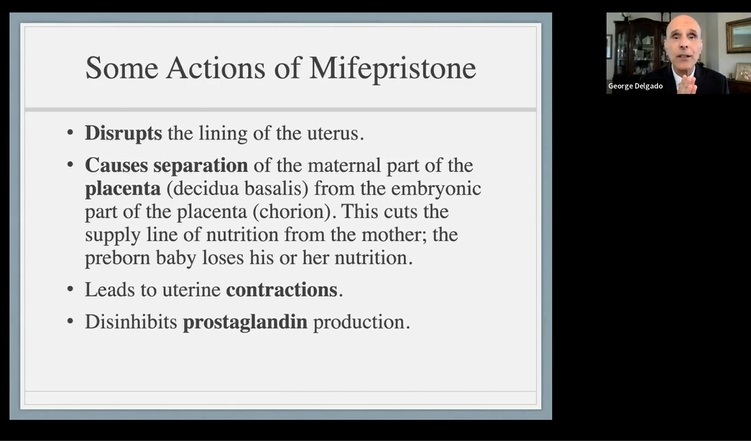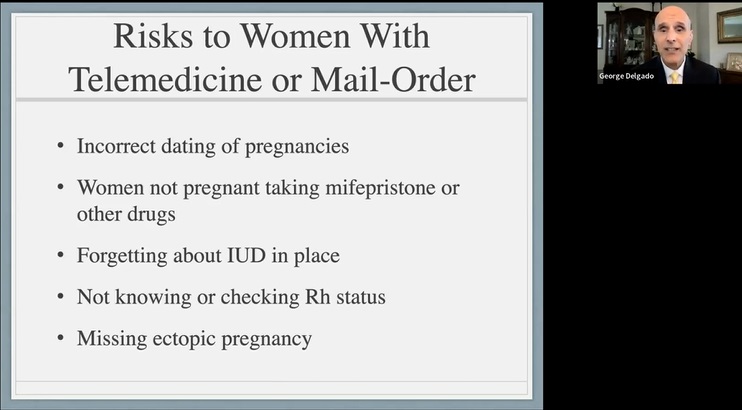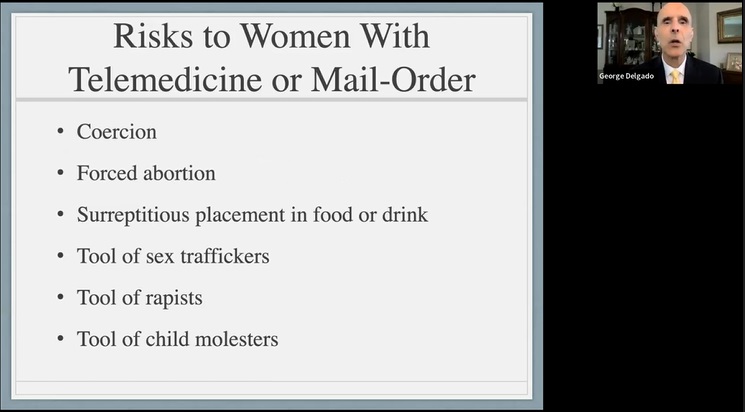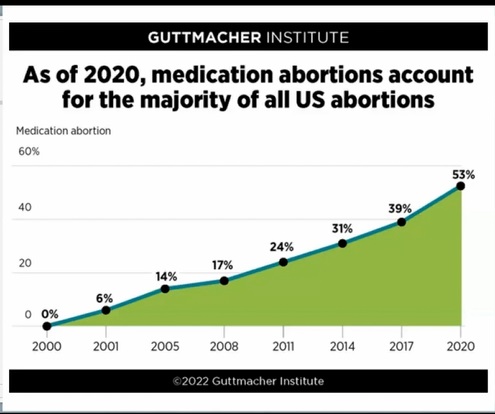Few individuals have spent as much time thinking and working toward giving women the opportunity at a second chance to choose life than Dr. George Delgado.
One of two physicians to pioneer abortion pill reversal (APR) and the originator of the network of APR providers, his workshop for this year’s Heartbeat International Breakthrough Conference was a focused dose of understanding every aspect of reversing chemical abortion.
Delgado is president of Steno Institute which is devoted to increasing awareness, education, and research around APR.
He also serves as a medical advisor for the Abortion Pill Rescue® Network (APRN), board member of American Association of Pro-Life Obstetricians and Gynecologists (AAPLOG) and medical director of San Diego’s Culture of Life and Family Services medical practice.
Delgado’s message laid out the case for the safety and efficacy of APR as well as the positive reaction seen by patients who benefit from the work of the APRN when they have been given a second chance to save their baby’s life.
“Women who are given the opportunity at a second chance at life are extremely grateful,” he reported.
[Click here to subscribe to Pregnancy Help News!]

Details of the history of mifepristone, the first medication given in a chemical abortion, were delineated by Delgado. Right down to the origination of the name and how when pro-life pressures initially stopped the marketing of the drug the French government forced the distribution through.
In the U.S., the distribution was crafted via a single product company, Danco Laboratories.
“Why did they do that?” Delgado asked rhetorically. “Well, they knew that mifepristone was a radioactive substance, that there might be lawsuits. And they figured it would be safer to have a single drug corporation in case there was a lawsuit that would take down the corporation.”
Delgado described effects of mifepristone verses the effects of the progesterone administered to reverse those effects. He used the analogy of a key in a keyhole where a false key (representing mifepristone) can fit into the lock and block it, but administering progesterone is a good key which unlocks the positive effect of supporting pregnancy.
“It’s called progesterone because that’s an acronym for progestational steroid,” he explained.
Progesterone is a hormone that promotes gestation and helps pregnancy continue. Even before pregnancy progesterone prepares the lining of the uterus so that implantation of the embryo can be accomplished.
Among the benefits Delgado noted from the use of progesterone, he listed: Progesterone promotes the maternal portion of the placenta adhering it to the wall of the uterus, relaxes the uterine muscle to inhibit contractions, and keeps the cervix closed.
Mifepristone disrupts the lining of the uterus. Acts to separate the maternal part of the placenta from the embryonic portion, cutting off nutrition from the mother. It encourages uterine contractions and disinhibits prostaglandin production.

The second drug administered in a chemical abortion is misoprostol which induces uterine contractions, softens, and opens the cervix resulting in the expelling of the remains of the preborn baby.
“But we have a window of opportunity between these two drugs,” Delgado stated. “The woman’s only taken the mifepristone and changes her mind. We have a way to reverse the effects of mifepristone.”
He went on to extoll the work of APR as more than 4,000 babies have been born to date following successful reversals.
“Probably closer to over 4,500,” he added. “There have been women helped in all 50 states and more than 70 countries.”
Tweet This: There have been women helped in all 50 states & more than 70 countries by the Abortion Pill Rescue® Network & more than 4,500 lives saved
The new APRN total of more than 4,500 lives saved and counting was announced at Heartbeat's Conference.

Delgado detailed some early studies conducted on chemical abortions, noting the limitations and difficulties of such studies. This has led to incomplete information on the effects of abortion drugs to say the least.
What is known are the statistics of the differences in surgical verses chemical abortions with the overall complication rate for chemical abortions at 20% and surgical at 5.6%. The two are equal in infection rates, however, the abortion pill leads to significantly more bleeding and the need for medical follow up for incomplete abortion calling for additional surgery.
This difference has resulted in 50% more abortion-related ER visits from the abortion pill as compared to surgical abortions.
Next, Delgado’s focus turned toward those women wanting a second chance at life.
“Women who seek abortion pill reversal aren’t concerned about incomplete abortion rates. They just want a baby at the end of the pregnancy,” he noted concentrating on APR studies.
Of the various studies conducted, the evidence lines up favoring the high dose oral protocol utilized by the APRN where 68% of the time a successful reversal results in the birth of a healthy baby.
“We’re happy to report that the birth defect rate is no greater than the general population,” Delgado said. “Therefore, that means that mifepristone and progesterone do not cause birth defects.”
Progesterone brings additional good news about preterm delivery as well, as Delgado reported that the rate was lower than the general population, most likely because progesterone promotes pregnancy. Side effect rates are low as well.
“Progesterone has always been considered safe,” he said. “It’s been used safely in pregnancy for over 50 years.”
Delgado detailed the common study aimed at decrying APR, by Dr. Mitchell Creinin, which was designed for that singular purpose, but which only managed to highlight the dangers of chemical abortion as it was halted early due to severe bleeding requiring ambulance transport to an ER.
This study, which Pregnancy Help News has previously covered, was conducted by a practicing abortionist. Certainly, Creinin had hoped to prove APR ineffective or unsafe.
“Mifepristone alone for abortion was unsafe in this study. Attempting reversal was not proven to be unsafe,” noted Delgado.
“If we go to Dr. Creinin’s own words in his article, in the conclusion sections,” Delgado continued, “we see that it says here: ‘Patients in early pregnancy who use only Mifepristone may be at high risk of significant hemorrhage.’”

Delgado further referenced the risks telemedicine and mail-order marketing of the abortion pill. It adds another layer of risk to abortion when women are not under medical care before, during or after an abortion.

These lowered standards also increase the risk of abuse to women in the form of coercion, forced abortions, and the malfeasant use of these chemicals by sex traffickers, rapists, and child molesters.
Delgado referenced statistics demonstrating the rapid increase in the use of chemical abortions.

Delgado was a plaintiff named in the lawsuit against the FDA in which a Texas judge suspended the use of mifepristone which was approved without a randomized placebo controlled study. This battle continues in the courts.
For the foreseeable future, Delgado acknowledged we will continue to have an increased number of women seeking APR.
He encouraged participants with these words, “It’s really important for those of us who practice medicine, those of us who are in pregnancy health centers, to be available to them and be ready to offer abortion pill reversal.”
Editor's note: Heartbeat International manages the Abortion Pill Rescue® Network (APRN) and Pregnancy Help News. Heartbeat Conference recordings can be purchased HERE.







